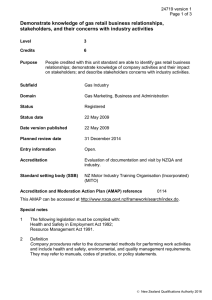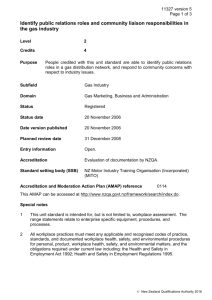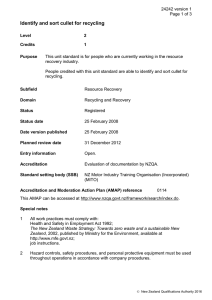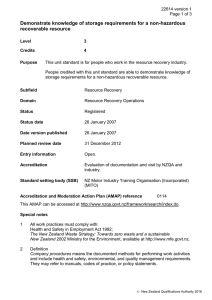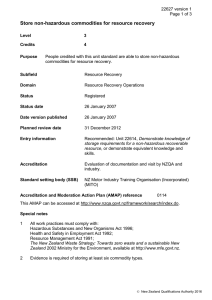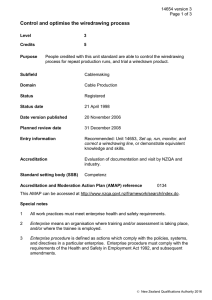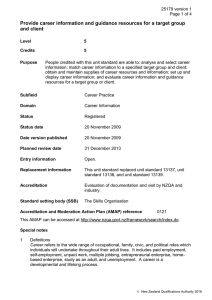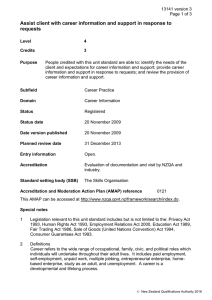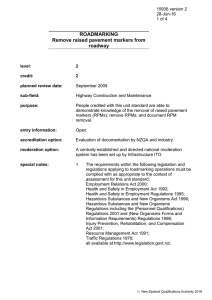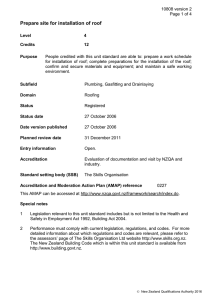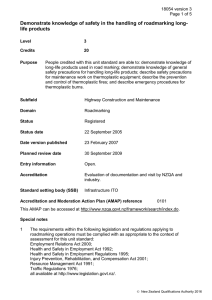Facilitate the zero waste component of a community project
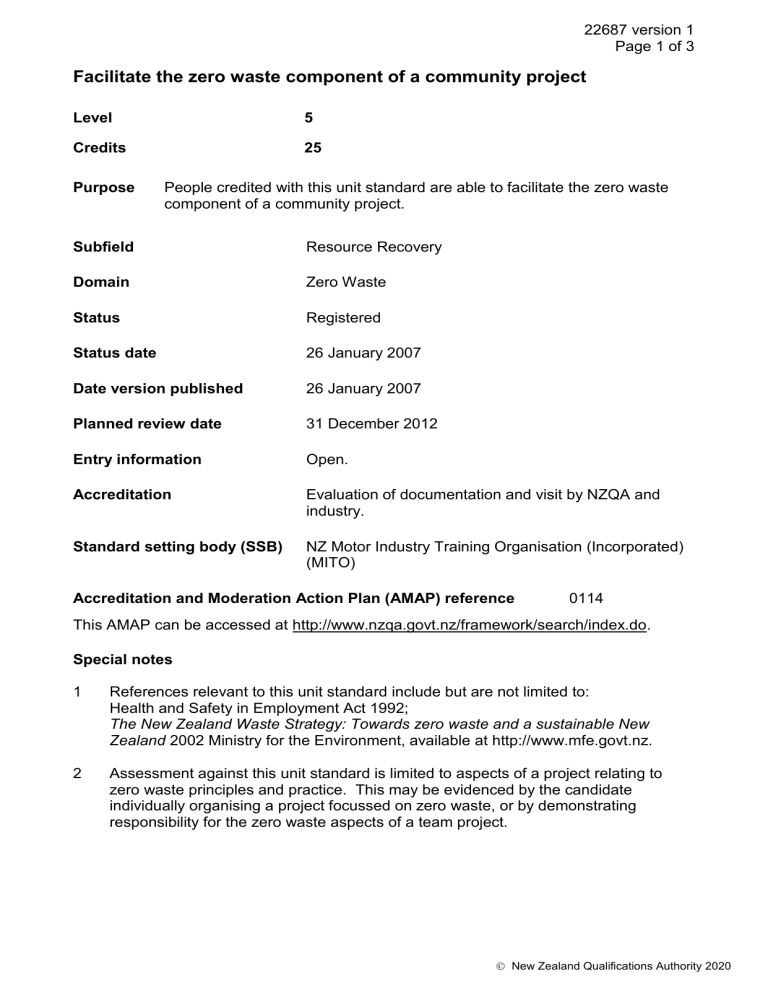
Facilitate the zero waste component of a community project
Level 5
22687 version 1
Page 1 of 3
Credits 25
Purpose People credited with this unit standard are able to facilitate the zero waste component of a community project.
Subfield Resource Recovery
Domain
Status
Status date
Date version published
Zero Waste
Registered
26 January 2007
26 January 2007
Planned review date
Entry information
31 December 2012
Open.
Accreditation Evaluation of documentation and visit by NZQA and industry.
Standard setting body (SSB) NZ Motor Industry Training Organisation (Incorporated)
(MITO)
Accreditation and Moderation Action Plan (AMAP) reference 0114
This AMAP can be accessed at http://www.nzqa.govt.nz/framework/search/index.do.
Special notes
1 References relevant to this unit standard include but are not limited to:
Health and Safety in Employment Act 1992;
The New Zealand Waste Strategy: Towards zero waste and a sustainable New
Zealand 2002 Ministry for the Environment, available at http://www.mfe.govt.nz.
2 Assessment against this unit standard is limited to aspects of a project relating to zero waste principles and practice. This may be evidenced by the candidate individually organising a project focussed on zero waste, or by demonstrating responsibility for the zero waste aspects of a team project.
New Zealand Qualifications Authority 2020
22687 version 1
Page 2 of 3
3 Definition
Project is a defined series of coordinated tasks with a defined outcome, start, and finish, such as a conference, festival, or weekend event.
Research is the systematic collection of information from primary and/or secondary sources calculated to produce knowledge and understanding. It may include any combination of the following:
Primary research
– gathering information from a direct source through interview, experimentation, and observation; secondary research – collation of information from existing printed or electronic resources.
Elements and performance criteria
Element 1
Facilitate the zero waste component of a community project.
Performance criteria
1.1
The component’s aims and success indicators are determined in accordance with client’s needs, and zero waste principles and practices.
Range education, promotion, relevant activity.
1.2 Facilitation ensures that health and safety requirements are met in accordance with legislation and company procedures.
1.3 Resourcing for the zero waste component of the project is planned in accordance with the agreed aims and indicators.
Range personnel, equipment, material resources, financial resources.
1.4 Facilitation ensures that people taking part in the zero waste component of the project are appropriately trained and aware of roles, responsibilities, and required competencies in accordance with legislation and company procedures.
1.5 Facilitation ensures that the zero waste component of the project is promoted to the target market in accordance with the plan.
Range promotion may include
– publication, newspaper, radio, website.
1.6 Facilitation ensures that the agreed zero waste aims and success indicators of the project are achieved in accordance with the plan, a nd the candidate’s range of control.
1.7 The zero waste aspects of the project are evaluated and reported in accordance with requirements of the client, fund providers, and other stakeholders.
New Zealand Qualifications Authority 2020
22687 version 1
Page 3 of 3
Please note
Providers must be accredited by the Qualifications Authority, or an inter-institutional body with delegated authority for quality assurance, before they can report credits from assessment against unit standards or deliver courses of study leading to that assessment.
Industry Training Organisations must be accredited by the Qualifications Authority before they can register credits from assessment against unit standards.
Accredited providers and Industry Training Organisations assessing against unit standards must engage with the moderation system that applies to those standards.
Accreditation requirements and an outline of the moderation system that applies to this standard are outlined in the Accreditation and Moderation Action Plan (AMAP). The
AMAP also includes useful information about special requirements for organisations wishing to develop education and training programmes, such as minimum qualifications for tutors and assessors, and special resource requirements.
Comments on this unit standard
Please contact the NZ Motor Industry Training Organisation (Incorporated) (MITO) info@mito.org.nz if you wish to suggest changes to the content of this unit standard.
New Zealand Qualifications Authority 2020
